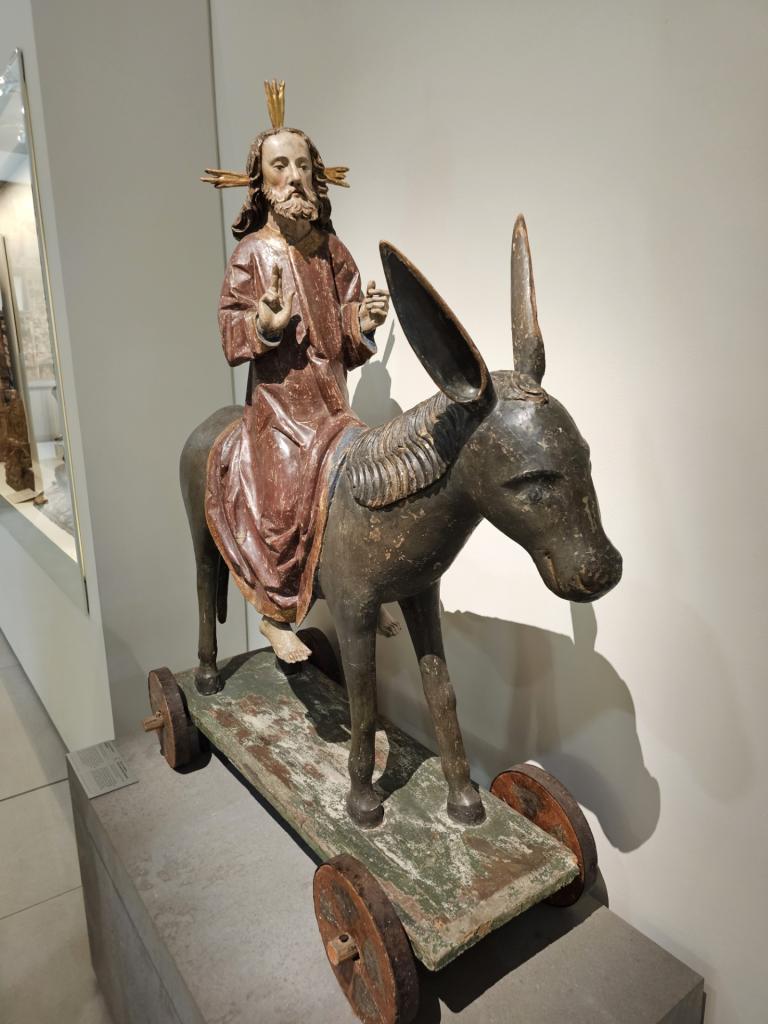By Gen.16 Abram and Sarai are already antiques– very old indeed. And clearly Sarai hears the clock ticking for God’s promise to come true, though it is not her biological clock. So she is handing over her slave girl, Hagar, and telling Abram to lay with her, in the hopes of producing some kind of offspring. In a patrilineal, patrilocal, and patriarchal culture, having children, and in particular having males was everything. One has to remember, the only form of immortality they believed in was one’s name being carried on by one’s descendants. Otherwise, one is just gathered to one’s ancestors in Sheol, the land of the dead. So one can understand Sarai’s sense of desperation, not least because it was believed that women were mainly to blame if there were no children.
In Gen. 16 we have the first reported speech of Sarai, and as Alter says, the first thing she says is a complaint about being childless, just like the later complaint of Rachel. Literally, since Hagar is basically viewed as property, Sarai is thinking and says ‘I will be built up through her’ punning on the word for son– ben, so she really means ‘I will be sonned through her’. We are informed that Abram and Sarai had already lived in Canaan for 10 years when out of desperation Sarai made this request of Abram and he complied. The unintended consequence of this arrangement, when Hagar did indeed become pregnant, is that she felt superior to her mistress Sarai –‘and she (Sarai) seemed slight in her eyes’. And now Sarai blames Abram! ‘This outrage against me is because of you!…Let the Lord judge between me and you.’ Obviously, Abram was in a no win situation, but maybe Sarai was thinking that Abram had deliberately not impregnated Sarai. Frustrated Abram retorts ‘This is your slavegirl. Do to her what you think is right’. And so the slave girl is harassed by Sarai and flees. But the God of mercy sends ‘his messenger’, (i.e. one of his angels). The messenger asks where she’s come and where she is going, and she explains. But then the messenger says return to your mistress and put up with the harassment. But at the same time the messenger promises ‘I will surely multiply your seed and it will be beyond all counting’, the same sort of promises earlier made to Abraham. And then the messenger tells her to give the child the name Ishmael.’ The name means ‘God has heard’, for the Lord has heeded her suffering. But we are told Ishmael will be hard to handle– a wild ass of a man, and he will be belligerent against all and vice versa. “he will encamp despite all his kin’. But in addition to hearing according to vs. 13 there is evidence of seeing and Hagar calls God El-roi ‘God who sees me’, and there ends up being a well, named after this encounter with God somewhere between Kadesh and Bered, which seems to be somewhere in the desert or what is called the wilderness in the Exodus saga. In any case, it is probably not in Canaan.
The story ends with the reminder that Abram is 86 when Hagar gives birth to Abram’s child.












 English (US) ·
English (US) ·